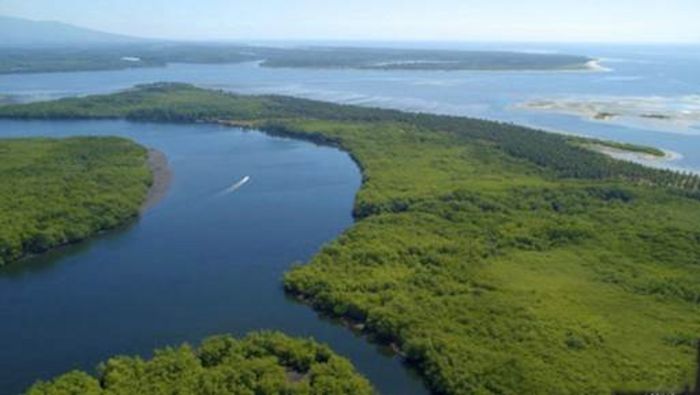The state of El Salvador fosters international investments to develop tourism. The government and private investors strive to transform Jiquilisco Bay into “the Cancun of Central America”. However, this comes at a cost: Local communities loose access to mangrove forests. Thus, their traditional ways of food production are disrupted and their food security is threatened.
Large Scale Tourism Development in Jiquilisco Bay
According to the Ministry of Tourism, in 2018 El Salvador experienced a 12.9% increase in international tourism, with respect to 2017. In the coming years, the Salvadoran government has committed to increase both the number of tourists and revenues by promoting an aggressive international promotion strategy - even reaching out to the Chinese market.
Jiquilisco Bay is one of the top tourist destinations, as it offers virgin beaches, lush mangrove forests, an impressive avian diversity and other wildlife species. In 2004, the Salvadoran Tourism Corporation (CORSATUR), a government agency, held a conference to attract foreign investment and international tourism companies. The plan was born to develop Jiquilisco Bay into the "Cancun of Central America". Within 25 years they aim to transform the area into a full-blown tourism hotspot with an airport, high-end resorts, shopping centers and more. Speculators have been acquiring as much property as possible, either by buying it at low prices or illegally appropriating public land.
Loosing access to Costal Lands and Mangroves
When visiting the community of El Chile, the first thing one sees is a barbed wire fence, which stretches into the mangrove forest until reaching the estuary. Manuel Cruz, a community leader, says that unknown people have closed off the beach and mangroves and are preventing local inhabitants’ passage. The 20 peasant families base their livelihoods on subsistence agriculture, fishing and collecting mussels (vivalves). For generations, the villagers have moved freely through the mangrove forest and the waters of the Bay. Restricting their freedom of movement does not only violate their rights as indigenous peoples, it directly affects their food security, limits their livelihood options. Thus, it leads to deepening poverty and violence.
Another example of the negative impact caused by large-scale tourism development is the case of Hotel Puerto Barías, a resort built south of the Jiquilisco Bay. According to Jose Santos Guevara, Director of the Association of United Communities d Bajo Lempa (ACUDESBAL), now the beach and small mangrove forest in the vicinity of the hotel is reserved solely for the delight of its high-paying vacationers. The indigenous families were forced to migrate. Some settled in the nearby Bajo Lempa region, mainly working as laborers in sugarcane plantations. Without a doubt, loosing their territorial roots also meant loosing parts of their culture and identity.
Relying on an intact environment
Government officials and private investors promise sustainable tourism projects and environmental and cultural protection. However, their claims are questionable because the type of tourism amenities they contemplate can only be offered by causing serious damage to the fragile ecosystem of the mangrove forests in the Bay. The majority of the communities in Jiquilisco Bay make a living by cultivating corn and beans, raising small livestock, fishing and collecting seafood from the mangrove forests. Therefore, an intact environment is essential for their food security and well being. It is also feared that the further spread of mass tourism will dismantle agricultural peasant communities by distracting youth with a consumer-oriented lifestyle.
There are a few family and community initiatives that offer lodging, food and food services for tourists. So far, they have not received technical or financial support from the government, which seems to interest only large-scale investment projects.
Respecting communities’ needs and interests
Undoubtedly, tourism can be a viable way to develop the economy and even protect fragile ecosystems. In order to live up to this potential, the Salvadoran state is required to establish and rigorously enforce environmental regulations, and communities must be informed, organized and involved in the decisions that directly affect them.
Mabel Barrera, a special-needs teacher from the Amando Lopez community says: "We are not against tourism as an economic activity. But we would like people to benefit from community and ecological tourism. Unfortunately, the government is promoting tourism controlled by large companies, which will have seriously have severe social impacts on our communities."
This sentiment was reflected in a declaration adopted some years ago by a large group of leaders from the communities of Jiquilisco Bay, which states: "We demand respect for our right to life and a healthy environment. We want forests to remain an inexhaustible source of life. We want to have clean and sufficient water supplies, and we want to produce our own food and feed ourselves properly... We want to remain free."
Jose Roberto Acosta is the Executive Director of Voices on the Border, a non profit organization that accompanies rural communities in El Salvador as they struggle for social and economic justice and sustainability.


